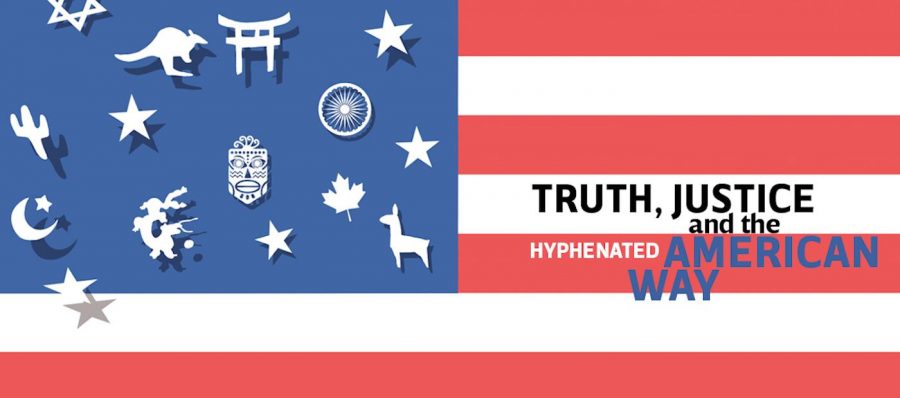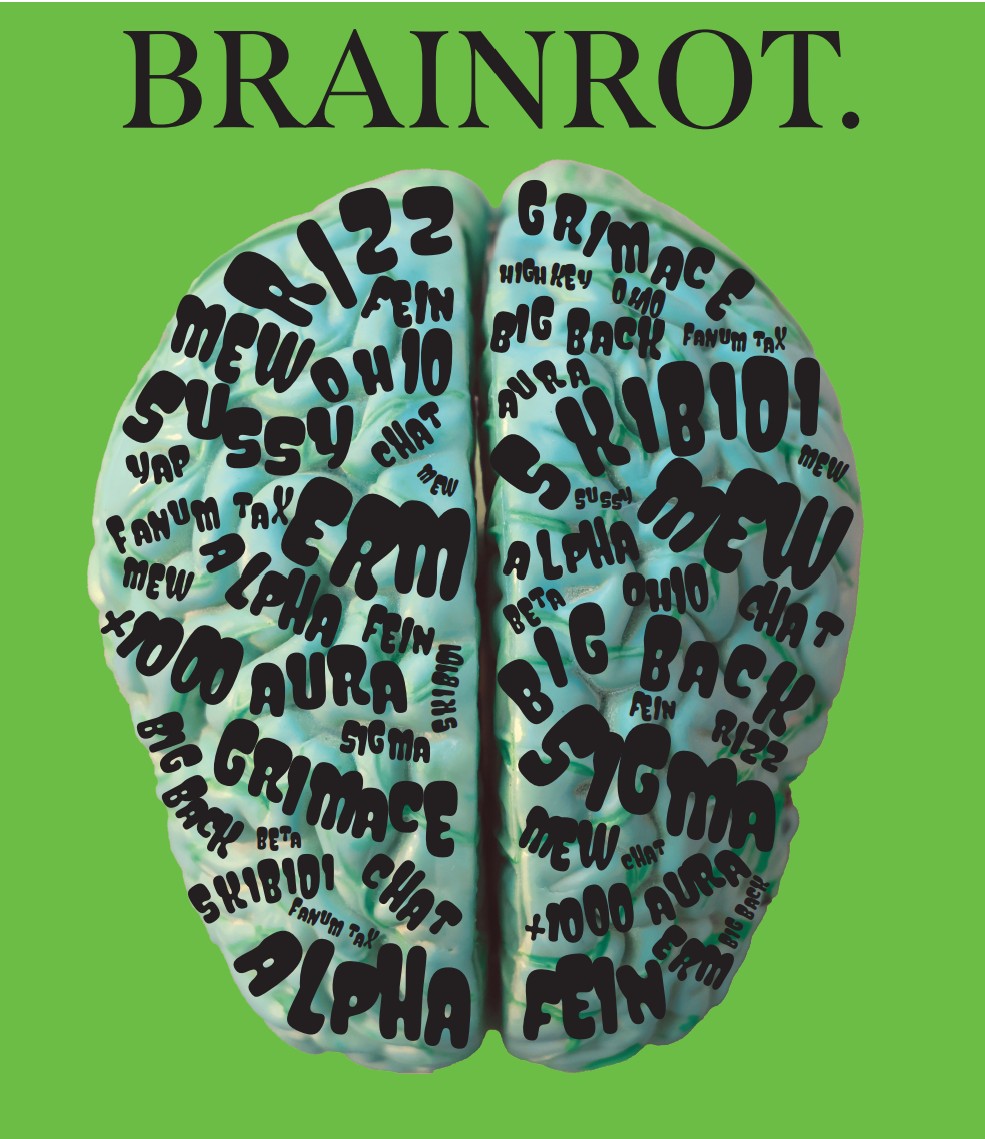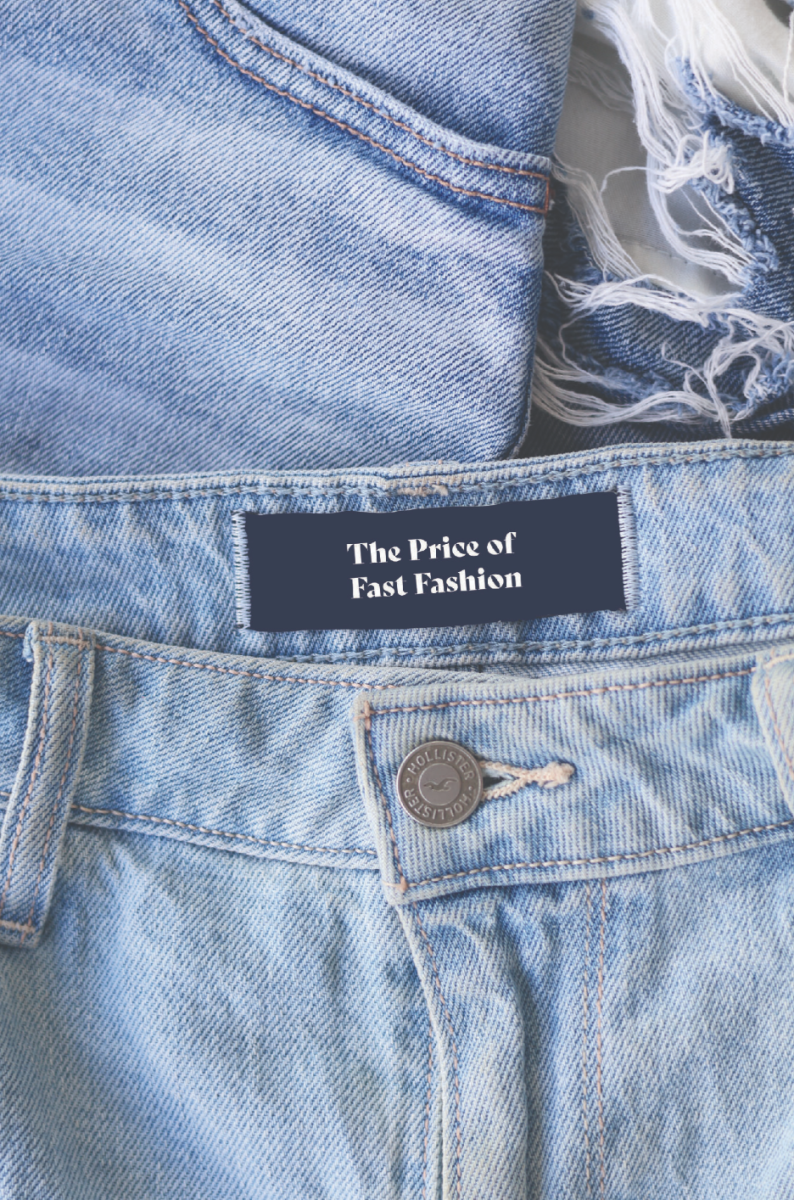Nov. 1, 2005. First grader Emma Deshpande walks into class dressed like all her classmates. But there is a difference: she is wearing a bindi on her forehead.
Two girls in her class block her path. “Why are you wearing that?” they ask her.
“It’s a bindi,” Deshpande explains. “I’m wearing it for Diwali.” She proceeds to describe to them the significance of one of the most important Hindu festivals, with celebrations usually spanning over five days.
“It looks weird,” one of the girls interrupts. “You need to take it off.”
Deshpande is startled by the girls’ bluntness. “No?” she says, more of a question than an answer.
In response, the girls reach over and rip the bindi off Deshpande’s forehead. They throw it in the plastic trash can, leaving Deshpande scared and alone.
“That was the first time I realized that being Indian was seen as something weird about me,” Deshpande, now a junior, said.
Confused. Out of place. Unaccepted. This is how it feels to be torn between two cultures.
History of the Hyphen
The term ‘hyphenated American’ is deeply rooted in racism, which has been an integral part of American society since colonists first enslaved Native Americans. While the majority of modern-day hyphenated Americans are not Caucasian, the term ‘hyphenated American’ actually started out as a derogatory epithet for German and Irish immigrants who flocked to the United States during the 19th century seeking better lives.
U.S. citizens at the time resented these immigrants, and their resentment was expressed through the formation of nativist parties such as the Know-Nothing Party, also known as the Order of the Star-Spangled Banner. Americans saw the immigrants as threats to their jobs, especially after the Panic of 1837, an economic recession in which unemployment was as high as 25 percent.
Upper School history teacher Steve Kramer has taught about the hostility Americans felt towards immigrants.
“They were seen as clannish: they drank; they despoiled the Sabbath and people accused them of ‘stealing the ballot box,’” Kramer said. Unless someone was describing their own heritage, the term ‘hyphenated American’ was seen as an insult.
Mexicans joined this minority group after the Mexican-American War, in which vast amounts of land were ceded to the United States by Mexico, including Texas. Along with the incorporation of Mexican territory into the United States came the issue of assimilating the Mexicans who lived in that territory into American culture.
The California Gold Rush in the mid-1800s brought in wealth-seekers from all around the globe, including Chinese immigrants. They, too, were given their own prefixes. Thus, in the late 19th century, the term began to stop applying to white immigrants and became used more frequently for immigrants of color. A pervasive ideology that certain civilizations were superior made white Americans feel as though they were above non-white Americans.
European-Americans compared industrialized America to places like Africa and were convinced that America was somehow better. Social Darwinism and other philosophical scientific movements helped peak this sense of superiority.
In the early 20th century, people began to speak out against Americans who chose to identify with prefixes. In 1915, President Theodore Roosevelt criticized these Americans, stating that “there is no such thing as a hyphenated American who is a good American. The only man who is a good American is the man who is an American and nothing else.”
More recent political figures have also expressed their aversions to the term. Bobby Jindal, a 2016 Republican Presidential candidate whose parents immigrated from India in 1971, said at a Republican leadership summit in April that he was “tired of the hyphenated Americans,” and that if his parents had wanted to raise Indian-Americans, they “would have stayed in India.” Conservative political commentator Rush Limbaugh said in March 2014 that “people came to this country…to become Americans,” and that immigrants should not be “blinded by any kind of nationalistic loyalty other than to America.”
Liberal journalists have expressed their disagreement with such views, sparking a debate on what exactly defines an American.
Americanism, Defined
The Great Melting Pot – a term historians ascribe to America’s nature of unifying many heterogeneous groups of people, and also how Ed Dorne, professor of political affairs at the University of Texas at Austin who has written multiple works on race relations, describes America.
“In the U.S., each of us is a composite. We are the sum of a variety of backgrounds and personal experiences,” Dorne said. “What makes up that composite – gender, religion, race or ethnicity, national origin, even our political affiliation – varies with circumstance.”
Certain studies, such as the research paper “Defining American Identity in the Twenty-first Century,” written by Tufts University Political Psychology professor Deborah J. Schildkraut, confirm this viewpoint.
Schildkraut found that 81 percent of the study’s participants, a group of people with various backgrounds who identified as American, emphasized “respecting America’s political institutions and laws” as a very important part of being American, while only 3.8 percent viewed “being white” as significant to the American definition.
Upper School students similarly reflected values of respect, primarily directed towards the various cultural backgrounds that many Americans possess, as defining themselves as American. Of 134 Hockaday students surveyed about what they believed was the most important part of being American, zero percent thought it was being white, while 65 percent chose respecting any cultural differences.
According to Schildkraut, however, an association between being white and being American still exists in society.
“We’re talking about implicit versus explicit attitudes here, something that’s well documented in psychology,” Schildkraut said. “People genuinely believe the kinds of things that they said to me, but that doesn’t mean that implicitly, what comes to mind automatically, is the same.”
Thus, surveys, such as the one Schildkraut has conducted, may not reflect the internalized attitudes, which Schildkraut believe may be difficult to dismantle.
“Even if they genuinely feel like they would reject any policy that said that Americans have to be white, they still have that automatic association,” Schildkraut said. “It’s very hard to break that.”
But why does this automatic association between being white and being American exist in society?
According to Dorne, the association has a large basis on history.
“The problem has started since the Naturalization Act of 1790, in which only free white persons can become naturalized citizens of the U.S.,” Dorne said. “The reason [the association] makes sense is that the history of this country is a history of white privilege, or put more crudely, this has long been perceived to be a white man’s country.”
Through the Eyes of an American
In the aforementioned survey, 31 percent of Upper School students identified as white-American, 22 percent identified as simply American, 32 percent identified with a prefix other than white and 8.2 percent identified as other. Deshpande is one of the 51 students that identifies as a hyphenated American and has suffered through racial prejudice because of it.
“Not fitting into the traditional stereotype of what ‘American’ is has definitely been a source of confusion for me,” Deshpande said.
People seem to have an image of a typical American as a white person, as evidenced by conspiracies about President Barack Obama’s birthplace. In 2010, a poll conducted by Harris Interactive revealed that a quarter of Americans surveyed believed that Obama, whose father is Kenyan, was not born in the United States, and was therefore ineligible to be president. Nearly half of all Republicans surveyed believed that Obama resented America’s heritage.
Conspiracy theories still persist today, despite the numerous releases of Obama’s birth certificate, which states that he was born in Hawaii. Seemingly-white 2016 Presidential candidate Ted Cruz, on the other hand, was born in Canada to a Cuban father – yet there are no demands to see his birth certificate, nor conspiracy theories about his eligibility.
Deshpande advocates for the use of hyphens and argues that the prefixes are necessary in order for non-white Americans to hold onto their cultures.
“The hyphens are there for a reason,” Deshpande said. “Otherwise, their cultures are stripped away and they’re forced to assimilate.”
Hockaday boasts wide diversity within the student body. Students of color constitute for 31 percent of all Hockadaisies, and the Hockaday Residence Department includes students from seven states and 12 different countries.
Freshman Rhett Anderson identifies as simply American, although she occasionally uses the prefix “Northern,” referring to the northern part of the United States.
“I’ve found that the North, the South, the East and the West [parts of the United States] are all very different,” Anderson, who hails from Vermont, said. “Texas is so different from where I’m from, I might as well be from China.”
Anderson chooses not to judge people based on first impressions and will not assign a prefix to someone unless they use it themselves. “I don’t call people [using hyphens]. I’ll say black or tawny or speckled or copper-tone. I think much more physical appearance than ethnical appearance.”
She used to assign prefixes but stopped due to mistakes she was making. “I used to, for example, go up to someone and say ‘hey, you’re Japanese, right?’ And it would turn out they were Korean or something,” she said.
Identifying as Hispanic, Senior Karla Salinas believes that using a prefix is a personal choice and usually describes hyphenated Americans with only the prefix, dropping the ‘American.’
“I take more pride in calling myself Latina than calling myself American,” Salinas said. “If you’re a minority, you should take pride in that.”
According to Salinas, the hyphen acts as a barrier between America and other cultures. “I don’t like [the prefixes] because it seems to me like it’s saying, ‘you have to be this before you can be American.’”
On the other hand, Freshman Hallet Thalheimer identifies as German-American and considers her German heritage to be an important part of her identity.
“I think that if someone feels that [the prefix] is important to them, then they should be able to use it,” Thalheimer said. “But I can see both sides of the argument.”
Salinas and Deshpande, however, both say that the prefixes aren’t necessary for white- Americans, who, due to a history of white privilege, often do not struggle with their identities in the way that hyphenated Americans do.
Deshpande argues that the hyphen is used to recognize the unique experiences of each prefixed group and that while, for example, a Hispanic-American will experience America differently than an African-American, a French-American and an English-American will most likely have similar experiences without discrimination.
While she recognizes that it’s important to hold onto your heritage, Deshpande said that the prefixes are there for a reason.
“When you become part of the dominant culture, you lose your prerogative to be able to identify with a certain prefix,” Deshpande said.
A Broader America
“A simple [acknowledgement] that we experience America in different ways.”
That’s the first step, according to Deshpande, to full assimilation of minorities in the definition of being an American.
She points to a still-existing stigma on race and discussion of it in society. “Oftentimes, we think our perspective is everyone’s perspective,” Deshpande said. “We get uncomfortable when we talk about race and about privilege and the way those affect our experience.”
Because of this stigma, Schildkraut believes that the dissolution of associations between being white and being American will take a long time.
“These associations were formed early on in life and are thus very difficult to break. It takes efforts early on by whole communities when people are young to even begin to undo some of those automatic associations that we form,” Schildkraut said.
Though he also believes that the disassembling of this association and the formation of a new definition of an American will be slow, Kramer holds a more hopeful view.
“People thought that after the passage of the Voting Rights Act and the Civil Rights Act of 1964, ‘well that’s the end of racism.’ It’s not,” Kramer said. “But I think at some point, I’m optimistic that the assimilation of minorities will happen.”
Jenny Zhu – Editor-In-Chief
Amanda Kim – Managing Editor














